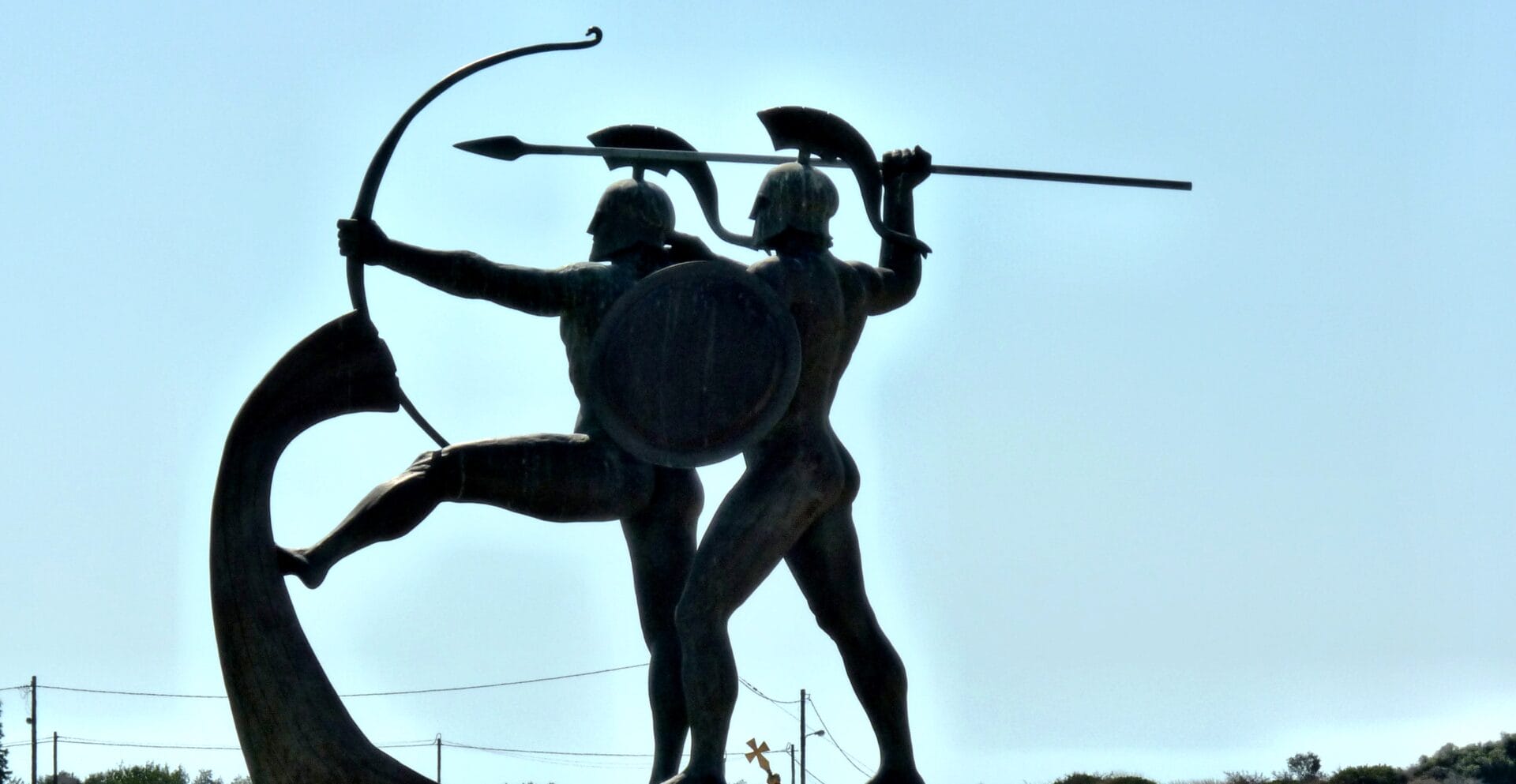
With It or On It
“With it or on it.”
Of all the pithy sayings in military history, this is my favorite. It has stiff competition, such as “I came, I saw, I conquered” or “the enemy gets a vote” or “Make haste slowly.” But “with it or on it” is mysterious and meaningful. It has something to tell us about how we write today. I’ll get to that, but first, a little background. Okay, a lot of background.
“With it or on it” comes from Sparta, the most famous warrior society in history. A place that gives us the adjective, “spartan,” which sums up military virtues such as resolute, severe, or austere. Wikipedia lists over 100 sports teams in the U.S. and Canada called “Spartans.”
But “with it or on it” is not the product of toxic masculinity. Actually, a woman said it. Spartan women were famously tough, part of a culture that bred females to raise heroes and partner with them. The “it” in question is a shield. The statement belongs to a legendary Spartan mother sending her son off to war. “Come back with your shield or on your shield,” she told the young soldier.
A little explanation is needed. The Greek infantryman carried a round body shield, held through a thong by the left hand. The shield protected both the left side of the soldier’s body and the right side of the man next to him. A Greek soldier, especially a Spartan, was meant to stand firm and steadfast in the battle line, holding up his shield to protect not only himself but his comrade. And if the enemy broke through the battle line? For a Spartan, that was unthinkable, but other Greeks might break and run. And throw away their shields, the faster to get away. No wonder that “Shield Thrower” was a term for coward in ancient Greece. For those who stayed and fought and paid a price, a shield served as a stretcher, for bringing back the wounded or the dead.
So, when that Spartan mother told her son, “with it or on it,” she was saying, “Come back with honor or come back dead.”
Jean-Jacques Rousseau, the French philosopher, considered Sparta a paradise of virtue. It was not. Ancient Greece was a militaristic society, and Sparta was the most militaristic of all. Ancient Greek city-states exploited unfree labor. Athens depended on chattel slavery, and Sparta on a kind of state serfs known as helots. (See another post for more on this.)
Spartans were proudly contemptuous of book learning. They claimed to be above money, but that rule was often honored only in the breach. No one with an ounce of democratic spirit could prefer Sparta to Athens.
But Sparta had its virtues. One of them was wit. A few examples: When she saw a foreign visitor have his shoes put on and laced up by his slave, the young Spartan princess Gorgo cried out, “Father, the man doesn’t have any hands!” To Alexander the Great’s demand that every Greek city-state recognize him as a god, the Spartans replied, “If Alexander wants to be a god, let him.” To a long-winded threat from King Philip of Macedon threatening to destroy Sparta if Macedon conquered it, a Spartan replied, “If.”
No wonder a synonym for pithy is laconic, which refers to Sparta’s geographical region, Laconia.
You gotta love the ancient Greeks. It was a Greek, although not a Spartan, who uttered one of my favorite phrases: “Big book, big bad.”
Now, back to us. We could use more less. Less verbiage. We live in the valley of verbosity. Word processing ushered us in, and the Internet closed off the way out. Time was, being a man of few words was considered a virtue. Nowadays, a 2000-word blog piece is just throat-clearing.
We have Twitter, of course, which started off strong. The CIA, for example, wrote when it joined Twitter, “We can neither confirm nor deny that this is our first tweet.” But the 140-character limit was doubled to 280, and it has since been rendered meaningless by “threads” that string together entry after entry. Tweets have turned into ornithological feeding stations.
But enough complaining. How can you do less? Just do it. Shorten your sentences. Take red pens to your prose. Read writing that slows the word train. The short stories of Edgar Allan Poe or Ernest Hemingway, the poetry of Emily Dickinson, the essays of H. L. Mencken or A.J. Liebling, for example. You want short and sweet? Try children’s books, like Goodnight, Moon. Or, for the theory of direct and lucid writing, I recommend a work by Francis-Noël Thomas and Mark Turner, Clear and Simple as the Truth: Writing Classic Prose. The authors are professors but don’t worry, they don’t write academese.
Let me close with a quotation from the Bible: “Even a fool, when he holdeth his peace, is counted wise, and he that shutteth his lips is esteemed a man of understanding.” (Proverbs 17:18, KJV).
Amen.